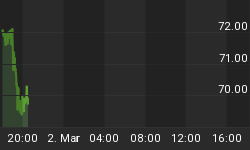Here are a couple of charts courtesy of Bankrate. The annotations are mine.
15-Year Fixed Rate Mortgages

30-Year Fixed Rate Mortgages

Explaining the Rebound in Housing
If you are looking for what fueled the rebound in home sales and the increase in home prices, look no further than the above chart.
In the two-year period from December 2010 until December 2012, the rate on popular 30-year mortgages fell from 4.97% to 3.42%, a decline of 155 basis points (1.55 percentage points). In April, rates were still near record lows at 3.56%.
Are Mortgage Rates Cheap?
From the record low in December 2012, 30-year fixed rate mortgages have risen 97 basis points to 4.39%.
While still low historically, it's the direction of the trend that is important, not the absolute number. A one percentage point increase in rates decreases housing affordability by 10-11%.
US Treasury Rates
Mortgage rates are generally tied to rates on 10-Year US treasuries. Here is a chart that explains the rise in mortgage rates.

$TNX: 10-Year Treasury Yield - Orange
$FVX: 05-Year Treasury Yield - Blue
$IRX: 03-Mnth Treasury Yield - Brown
The above chart from yesterday's post Treasury Yields Rise Following .2% Rise in Retail Sales; Fed Tapering Begins in September?
Treasury Yields and Housing Affordability
On June 24, in 10-Year Treasury Yield Up 100 Basis Points Since May; What's That Mean for Mortgage Rates and Housing Affordability? I commented ...
Anyone who stretched to buy is no longer qualified unless they locked some time ago.
Refinancing will soon be dead in the water (anyone who has not already locked no longer has any incentive) and new home affordability has taken a big hit.
Mainstream media talking heads say this will not affect the housing recovery. Assuming this trend sticks (even if rates simply level off now), how can this bond revolt not affect housing?
Mortgage Applications Decline 13th Time in 15 Weeks
From the latest Mortgage Bankers Association Weekly Application Survey ...
- Mortgage applications decreased 4.7 percent from the previous week
- The Refinance Index decreased 4 percent from the previous week
- The seasonally adjusted Purchase Index decreased 5 percent from the previous week
- The unadjusted Purchase Index decreased 6 percent compared with the previous week
One week does not make a trend, but the trend looks ominous. The weekly application surveys show a decline in mortgage applications for the 13th time in 15 weeks.
What's Next Housing?
Curiously, refinance applications although trending lower, still account for about 63% of applications.
I spoke with my friend Michael Becker, a mortgage broker at WCS Funding Group and he commented that he is still refinancing people with rates over 6%. Some people just now have the equity available to refinance.
Yet, with rising rates, the drop in affordability, the pent-up demand to buy declining, and the decline in the number of applications, don't expect too much more (if any), rise in home values. And don't expect mortgage applications to break this trend either.
OK Ben, you still going to taper?















